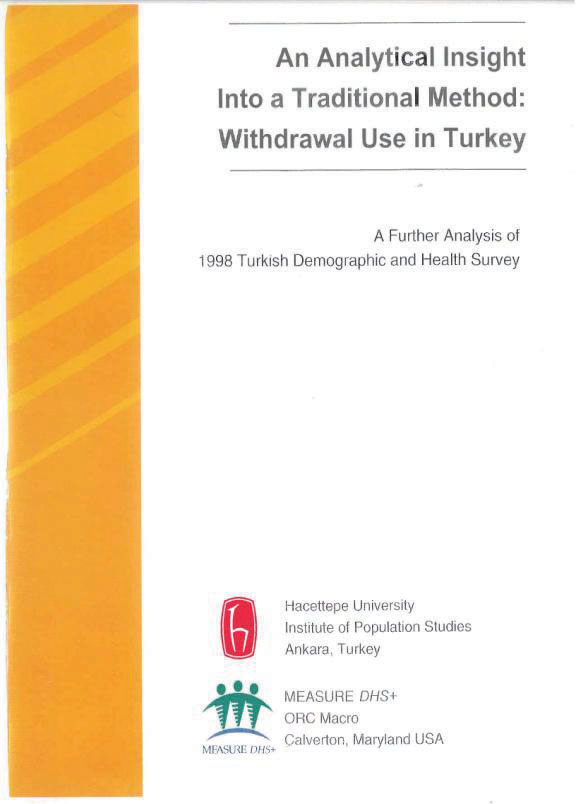- PUBLICATIONS
- JOURNAL ARTICLES
- ACCESS PUBLICATIONS
Publications Summary
- Document Type
- Further Analysis
- Publication Topic(s)
- Family Planning
- Country(s)
- Turkey
- Survey
- Turkey DHS, 1998
- Language
- English
- Recommended Citation
- Ergöçmen, Banu Akadi, Ismet Koç, Elif Kurtulus Yigit, Pinar Senlet, and Elaine Roman. 2001. An Analytical Insight into a Traditional Method: Withdrawal Use in Turkey. DHS Further Analysis Reports No. 36. Calverton, Maryland, USA: ORC Macro.
- Download Citation
- RIS format / Text format / Endnote format
- Publication Date
- December 2001
- Publication ID
- FA36
Download
 An Analytical Insight into a Traditional Method: Withdrawal Use in Turkey (PDF, 3065K)
An Analytical Insight into a Traditional Method: Withdrawal Use in Turkey (PDF, 3065K)
